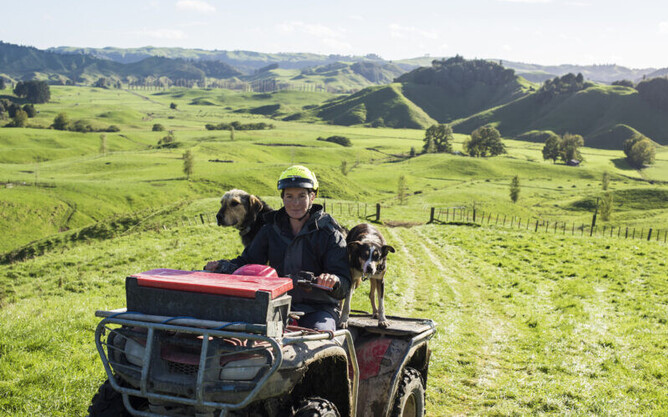Rural Coach partner for Waikato-King Country Dani Darke describes farm succession planning as a process of bringing the next generation through and for the current owners, taking a step towards their next stage of life.
Generational farming families are at the heart of New Zealand’s primary sector, but putting a succession plan in place is often the can kicked down the road when it should be in place from the beginning.
“It’s up to the individual – but if you have family, there is no doubt that they will be wondering what is going to happen in the future, and where they fit into that,” partner for Rural Coach, a company which specialises in assisting farming families throughout their succession planning process, Dani Darke said.
She said leaving people in limbo like that is “very tough and causes strain on people’s mental health and relationships”.
“It’s seen all too often that the next generation comes back home, starts working on the farm, but sometimes it is years before they are given any clarity as to where they fit in with the future of the farm.”
Farm succession planning is a “process of determining the future of your farming assets”, however, this doesn’t necessarily mean simply passing the farm on to the next generation, it could also mean that that family decides that it’s best to sell the land.
“It is the process of bringing the next generation through and for the current owners, taking a step towards their next stage of life,” she said.
And while succession planning provides an opportunity to bring fresh energy and ideas into the business, it can also be the source of a lot of fear because of the changes that may come.
“We (Rural Coach) advocate for people to start their succession planning early. Being proactive with your succession planning gives you time and options. It gives you the ability to include everyone in the process, and make sure all voices are heard,” she said.
“Some say that succession planning should start when you buy the farm. Certainly, a strategy that keeps succession in the forefront from the beginning will help ensure important decisions around business growth are made with this in mind.”
Planning ahead for farm succession means you can deal with potential problems as they arise. Challenges include conflict or friction at the family level and willingness of family members to actively participate in the succession planning process.
“Left unchecked, it is likely that this will fester and sabotage the ability to achieve a workable and living succession plan,” she said.
It’s also important to align expectations with reality; for example, transitioning an unprofitable business forward to the next generation will not be feasible.
“For example, desiring to settle three children into separate businesses when the existing equity will only meet the parents’ needs in their lifetimes will cause grief for all. In this situation, resetting expectations would be a necessary step,” she said.
Darke, who has spent nearly two decades in the agriculture industry while farming and bringing up a family, said creating a shared vision for the family that everyone has had input into is crucial to the plan’s efficacy.
“We all know families where succession planning is the elephant in the room, or has only been addressed when things have started to go a bit pear shaped. Be courageous, and get the conversation on the table. This could mean upskilling them around the financial aspects of the business,” she said.
“We’ve worked with many situations where the children that are not going to take over the farm have been fully supportive of their farming siblings to get ‘more’ than them to ensure the farm stays in the family.
“What is important here is getting clear on what it is your children value and what their dreams and aspirations for the future are. Assumptions are just that – any succession plan needs to genuinely take in account what is important to everyone involved.”
Having an independent facilitator to assist with this process could be critical to ensuring your vision goes according to plan.
Succession planning is a collaborative process, with the most robust plan involving all of the wider team, and will often result in updating wills and powers of attorney.
A lawyer is often engaged and accountants will advise around business entities and structure.
A farm consultant may also be part of the picture, helping the next generation to maintain or improve the profitability of the business.
“Often families think they can do this themselves and have the best intentions in doing so. However, there can be unspoken power gradients in a family that may cause people to stay quiet,” she said.
“For example, with dad chairing the meeting, are you sure that you’ve really understood your daughter-in-law’s point of view, or has she kept quiet, not wanting to step on any toes, or feeling it’s not her place to have a say? Has mum been really open about what she wants, or has she been playing the role of peacemaker?
“Every family has its own dynamics and behaviours and having someone neutral in the room, keeping the conversation moving forward is really important.”
Published in Farmers Weekly on May 26, 2022.



